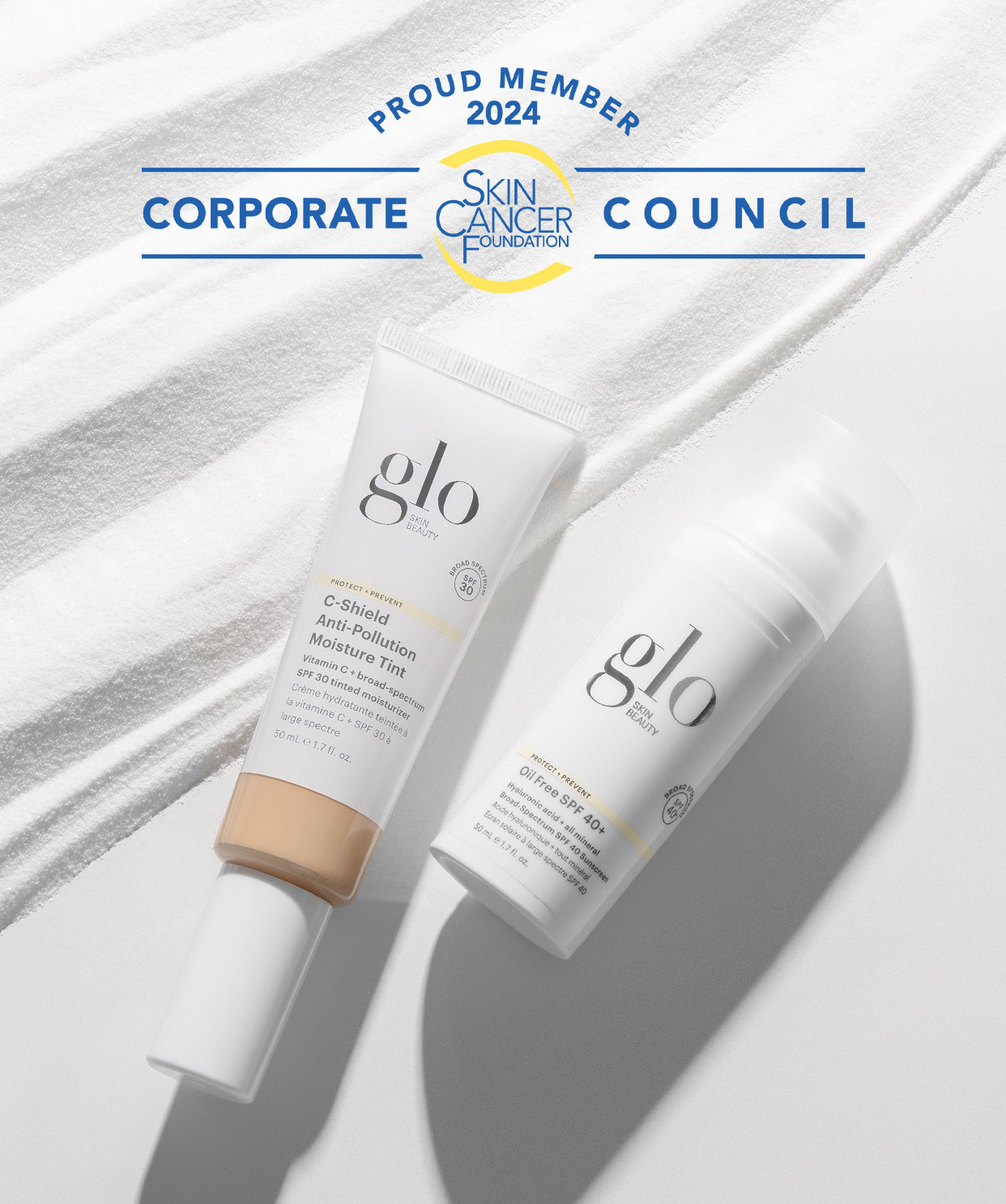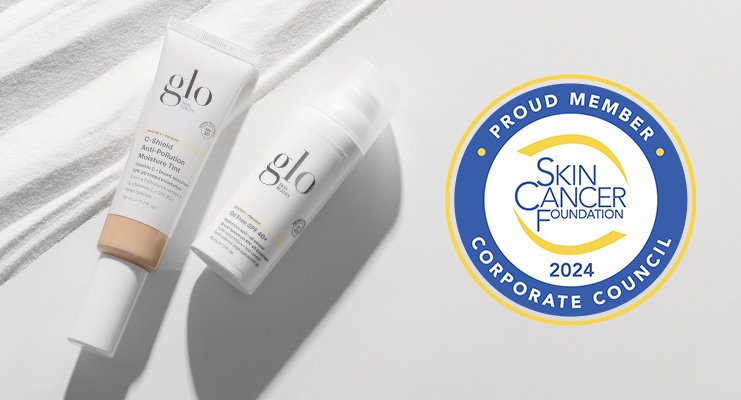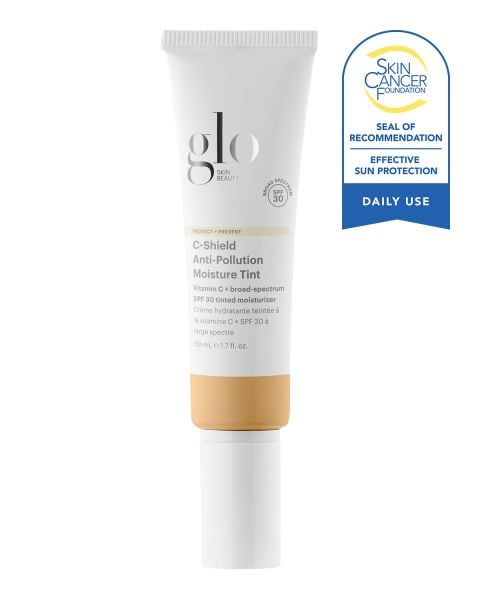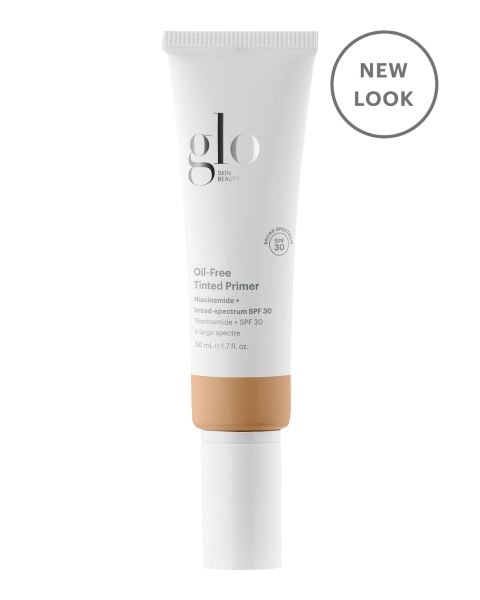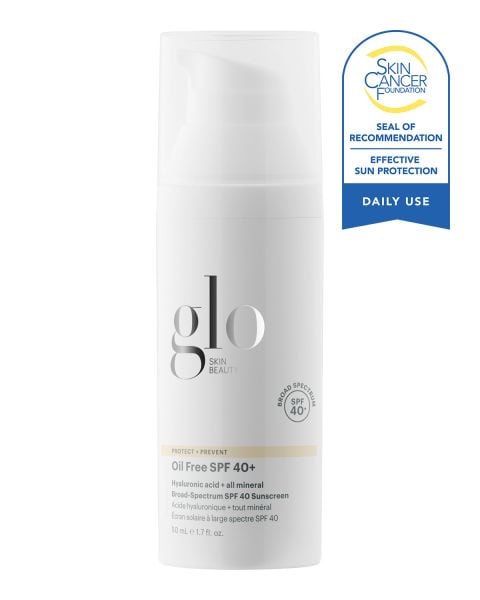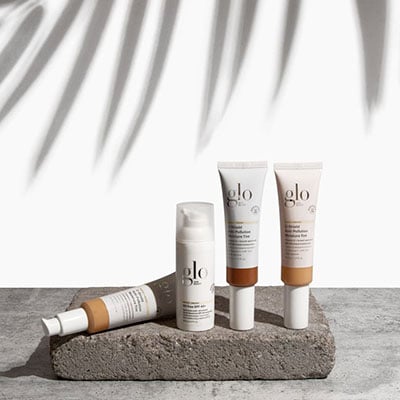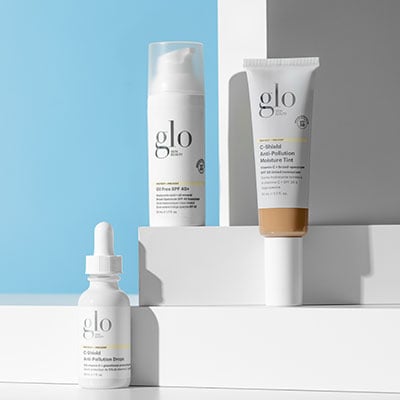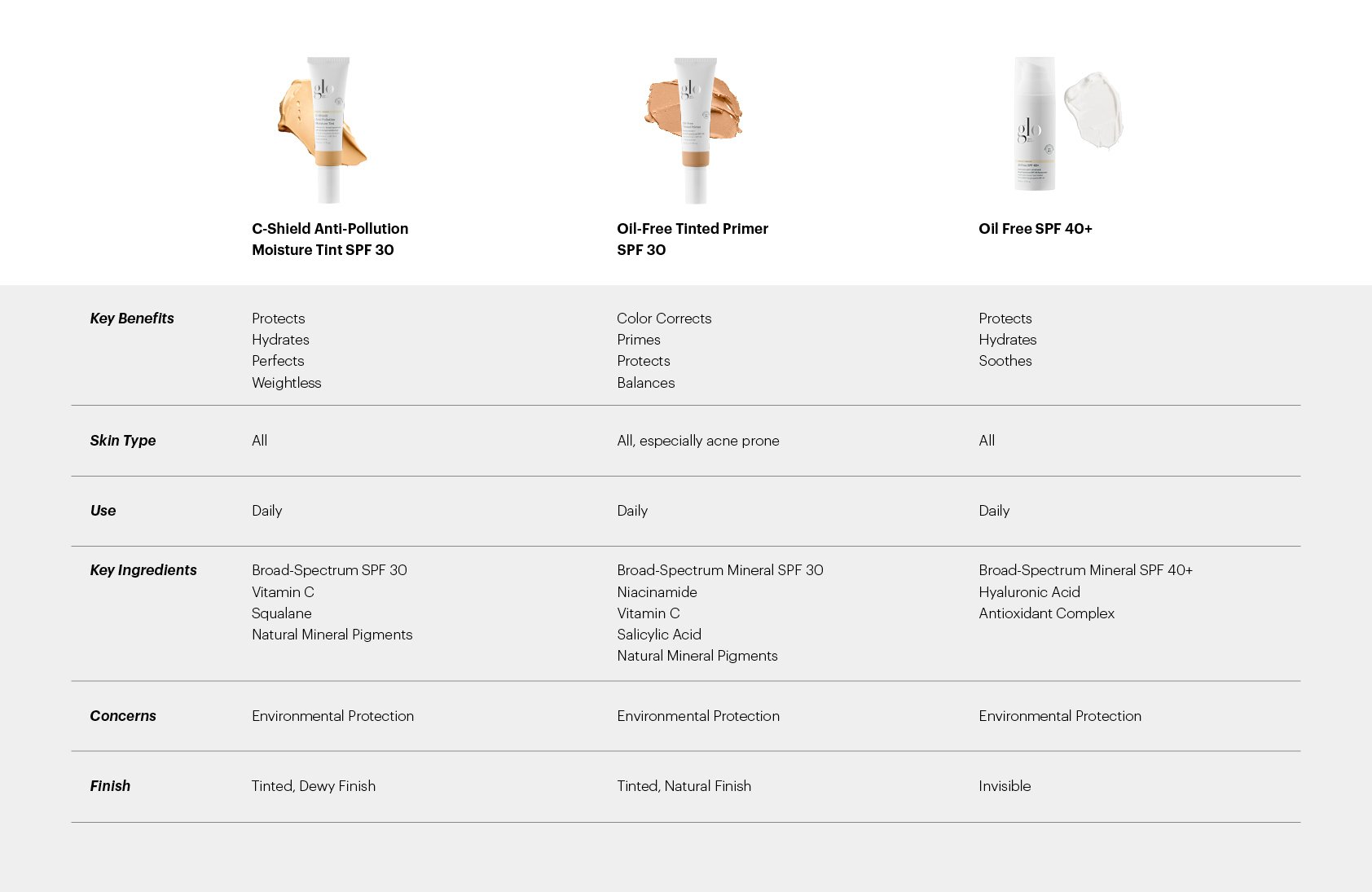Frequently Asked Questions About Tinted Sunscreen for Face
What is the best sunscreen for your face?
The best sunscreen for daily use needs to have an SPF (sun protection factor) of at least 30. This gives your skin robust protection from the sun’s harmful UVA and UVB rays which can lead to sun damage and premature aging. Always remember to reapply your sunscreen every two hours throughout the day for continuous coverage. If you have oily skin, the best sunscreen will be non-comedogenic and oil-free so it doesn’t clog pores or lead to breakouts. For dry skin, the best sunscreen will have hydrating ingredients like hyaluronic acid. Our Oil Free SPF 40+ is suitable for all skin types and has factor 40 protection.
How much sunscreen should I apply to my face?
Apply around a nickel-size amount of sunscreen to your face and décolleté, massaging it evenly into your skin. Reapply the same amount every two hours throughout the day.
What is a mineral sunscreen?
A mineral sunscreen is also known as a physical sunscreen because it creates a barrier between your skin and the sun’s rays. Mineral sunscreens use zinc oxide and titanium dioxide for that buffer, reflecting and scattering the UV rays away from your skin. Many people prefer mineral sunscreens as they’re suitable for sensitive and acne-prone skin and don’t contain harmful chemicals that can penetrate into the skin. Previously associated with heavier textures and a tendency to leave an ashy, white cast on skin, mineral sunscreens are now available in lighter-weight, reef-safe formulations, with an invisible finish like our Oil Free SPF 40+.
What is the best sunscreen for oily skin?
If you have oily skin you’ll want a sunscreen that’s oil-free and non-comedogenic, meaning it doesn’t clog pores, lead to breakouts, or leave a shiny finish on your skin. Look for oil-control formulas that offer weightless hydration and skin protection like Oil Free SPF 40+ which is also fragrance-free, reducing the risk of skin irritation.
What is the best sunscreen for sensitive skin?
The best sunscreen for sensitive skin is a broad-spectrum mineral sunscreen that’s fragrance-free as this will be gentle on the skin and won’t cause irritation. Make sure it includes hydrating, nourishing ingredients to give your skin a moisture boost, while protecting it from harmful UV rays and other environmental stressors.
Why use tinted sunscreen?
Tinted sunscreen is a great multitasking option, protecting skin from damaging UV rays while adding a hint of tint to even out tone and gently mask any imperfections. C-Shield Anti-Pollution Moisture Tint SPF 30 will be your go-to for this. It’s the perfect hybrid of sun protection, color-correction, and creates a nourishing, even complexion with a dewy, radiant finish.
What’s the difference between tinted sunscreen and tinted moisturizer?
While the terms are often used interchangeably, tinted moisturizers typically focus more on hydration and sheer coverage. Glo’s C-Shield Anti-Pollution Moisture Tint SPF 30 bridges both—delivering moisture, pigment, and SPF in one step. Tinted sunscreens are primarily sun protection products that also happen to offer cosmetic benefits like tone-evening tint and skin-blurring.
Is tinted sunscreen enough sun protection?
Yes—if it offers broad spectrum SPF 30 or higher, like Glo’s formulas. Be sure to apply the recommended amount and reapply as needed throughout the day.
Can I wear tinted sunscreen under makeup?
Absolutely. Both the Oil-Free Tinted Primer SPF 30 and C-Shield Moisture Tint SPF 30 wear beautifully alone or under foundation. The primer option especially helps extend makeup wear with a soft-focus finish. For best results, use a makeup blender sponge to seamlessly apply either product, ensuring even coverage and a skin-like finish.
What shade should I choose?
Each tinted sunscreen is available in multiple shades designed to blend across a wide range of skin tones. Visit each product page to view swatches and descriptions to help you find your best match.
Can I use tinted sunscreen on sensitive or acne-prone skin?
Yes. Both of Glo’s options are non-comedogenic, oil free, and tested for sensitive skin. The mineral actives are soothing and less likely to cause irritation or breakouts in acne-prone skin.
What’s the best tinted sunscreen for oily skin?
Glo’s Oil-Free Tinted Primer SPF 30 is ideal for oily or blemish-prone skin. It controls shine while providing a smooth, matte finish that helps blur imperfections.
Should I apply sunscreen under or on top of makeup?
For your first application of the day apply your skincare first, then add your sunscreen before applying makeup. This helps your sunscreen to form a protective barrier on your skin. To reapply your sunscreen every two hours throughout the day you will then need to add your sunscreen over your makeup. To do this, gently dot on the sunscreen—paying special attention to the high points of your face, and use clean fingers or a clean makeup blender sponge to blend lightly using tapping or bouncing motions instead of rubbing. This will help keep your makeup intact. Top off your makeup as needed. Additionally, choosing products that blend well with your foundation is helpful.


